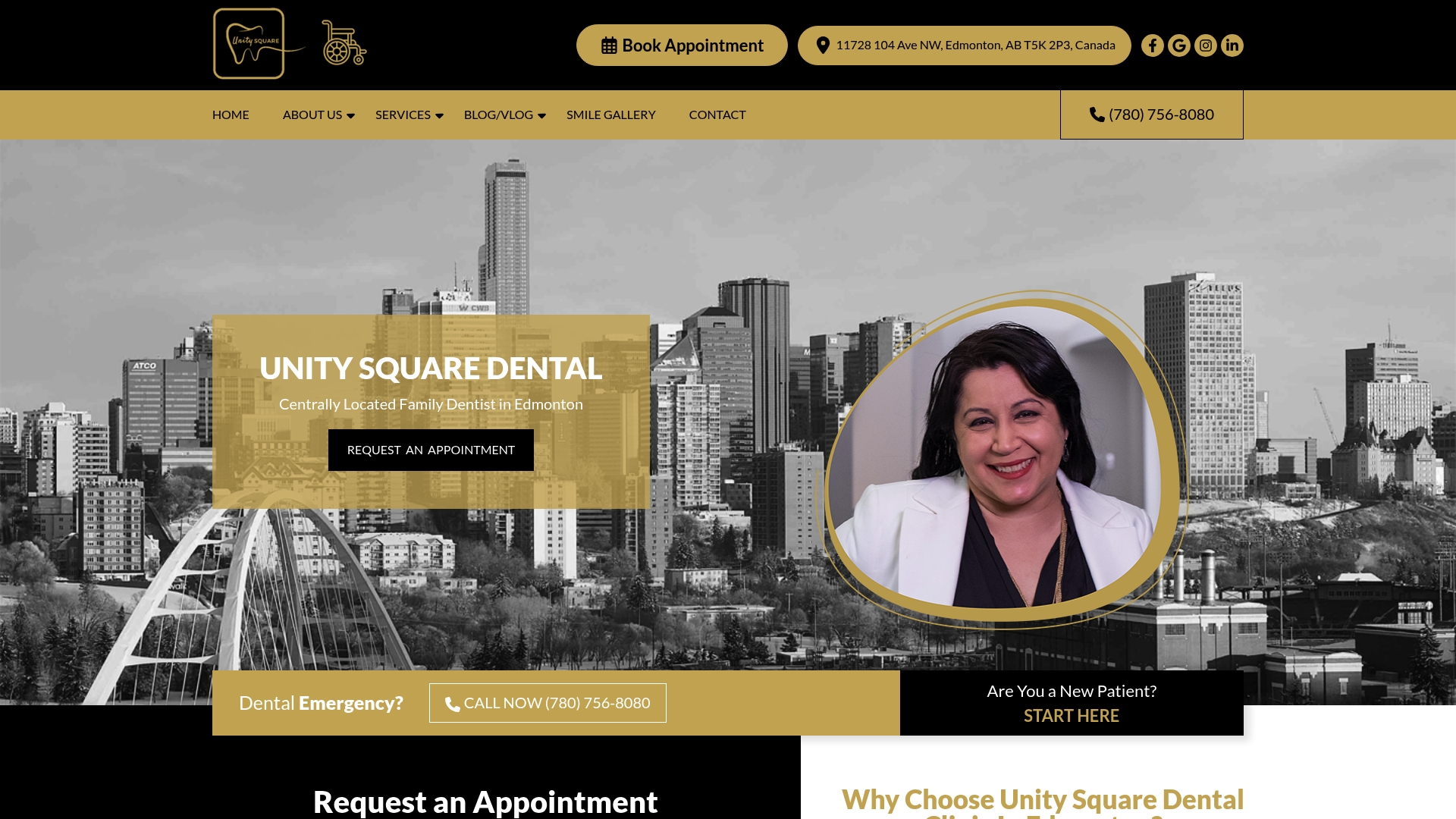
Over 90 percent of people use mouthwash at least occasionally, yet many still misunderstand its real purpose and potential risks. Oral hygiene is not just about fresh breath; choosing the right mouthwash can make a meaningful difference in cavity prevention and gum health. This guide cuts through common myths, explains the true benefits, and clarifies how to safely make mouthwash work for your unique dental needs.
Table of Contents
- What Is Mouthwash? Uses And Misconceptions
- Types Of Mouthwash And Key Differences
- Benefits Of Mouthwash For Oral Health
- Potential Risks And Side Effects Explained
- Choosing And Using Mouthwash Safely
Key Takeaways
| Point | Details |
|---|---|
| Mouthwash is an adjunct | Mouthwash complements brushing and flossing but is not a substitute for them in maintaining oral hygiene. |
| Types of mouthwash matter | Choosing between fluoride, antiseptic, cosmetic, and natural mouthwashes is essential based on specific oral health needs. |
| Potential risks exist | Long-term use of certain mouthwashes can lead to oral microbiome disruption and other health complications. |
| Consult professionals | Always consult with dental professionals to select appropriate mouthwash and usage practices tailored to individual needs. |
What Is Mouthwash? Uses and Misconceptions
Mouthwash is more than just a minty liquid you swish around your mouth. According to scirp.org, it is a critical antiseptic and antimicrobial agent designed to complement your regular oral hygiene routine. Functioning as an adjunct to brushing and flossing, mouthwash helps prevent cavities and provides additional protection against harmful bacteria.
Most mouthwash formulations contain key active ingredients that target different oral health needs. Fluoride-based mouthwashes strengthen tooth enamel, reducing the risk of decay caused by acidic environments and bacterial attacks. Other specialized formulations might include ingredients targeting specific concerns like gingivitis, bad breath, or sensitivity.
However, it’s crucial to understand that mouthwash is not a standalone solution. adavb.org warns that long-term mouthwash use can potentially have side effects, including:
- Potential gum irritation
- Altered taste perception
- Masking underlying dental problems
Especially important is the caution around alcohol-based mouthwashes, which might increase oral cancer risks with prolonged use. This doesn’t mean avoiding mouthwash entirely, but rather using it judiciously and consulting with dental professionals about the most appropriate product for your specific oral health needs.
If you’re considering incorporating mouthwash into your dental routine, Mouthwash vs Brushing: Complete Expert Comparison can provide additional insights into making an informed decision.
Types of Mouthwash and Key Differences
According to ijcrt.org, mouthwashes are not a one-size-fits-all solution. There are several distinct types of mouthwash, each designed to address specific oral health concerns. These categories include fluoride, antiseptic, cosmetic, and natural mouthwashes, each with unique characteristics and targeted benefits.
Fluoride mouthwashes are particularly important for cavity prevention. They help strengthen tooth enamel by remineralizing teeth and providing an extra layer of protection against decay. However, it’s crucial to use these carefully, as swallowing fluoride can be harmful. Antiseptic mouthwashes are another critical category, specifically targeting oral bacteria and helping to combat bad breath by killing germs and reducing plaque buildup.
Natural alternatives are gaining popularity for those seeking gentler oral care options. pmc.ncbi.nlm.nih.gov highlights promising research on natural mouthwashes, particularly those containing ingredients like pomegranate. These formulations offer compelling antimicrobial properties that can be comparable to traditional chemical-based options, providing an effective and potentially safer alternative for individuals with sensitive mouths.
Comparing mouthwash types reveals important distinctions:
- Fluoride Mouthwashes: Cavity prevention, enamel strengthening
- Antiseptic Mouthwashes: Bacteria reduction, plaque control
- Cosmetic Mouthwashes: Temporary breath freshening
- Natural Mouthwashes: Gentle ingredients, minimal chemical exposure
Choosing the right mouthwash depends on your specific dental needs and concerns.
IMAGE:descriptive_key_1] For a more detailed comparison to help you make an informed decision, check out our [Mouthwash vs Brushing: Complete Expert Comparison.
Benefits of Mouthwash for Oral Health
Mouthwash offers several significant advantages for maintaining optimal oral hygiene. pmc.ncbi.nlm.nih.gov reveals compelling research demonstrating the antibacterial effectiveness of mouthwash in combating oral pathogens. By targeting and reducing harmful bacteria, mouthwash provides an additional layer of protection beyond traditional brushing and flossing.
One of the primary benefits of mouthwash is its ability to reach areas in the mouth that brushing and flossing might miss. Bacterial reduction is particularly crucial in preventing conditions like gingivitis, tooth decay, and bad breath. Different mouthwash formulations can address specific oral health concerns, from reducing plaque buildup to freshening breath and protecting tooth enamel.
However, it’s essential to approach mouthwash use with nuance. pmc.ncbi.nlm.nih.gov highlights potential risks associated with frequent mouthwash use. Certain components, especially in alcohol-based formulations, can potentially impact dental restorations and oral tissues. This underscores the importance of choosing the right mouthwash and using it judiciously.
Key benefits of incorporating mouthwash into your oral hygiene routine include:
- Reducing oral bacteria
- Preventing plaque formation
- Freshening breath
- Reaching difficult-to-clean mouth areas
- Providing additional protection against tooth decay
To understand how specific dietary choices might complement your oral health routine, explore our guide on best foods for oral health. When used correctly, mouthwash can be a powerful tool in maintaining comprehensive dental wellness.
Potential Risks and Side Effects Explained
Mouthwash, while beneficial, is not without potential risks. pmc.ncbi.nlm.nih.gov reveals a critical concern about certain mouthwashes, particularly those containing chlorhexidine, which can cause microbiome disruption. This phenomenon, known as ‘dysbiosis’, fundamentally alters the delicate bacterial balance in your mouth, potentially leading to unexpected oral health complications.
Moreover, the impact extends beyond oral health. pmc.ncbi.nlm.nih.gov highlights a more systemic concern: over-the-counter mouthwash use can interfere with beneficial bacteria responsible for nitric oxide production. This disruption might increase risks of cardiometabolic diseases, suggesting that indiscriminate mouthwash use could have broader health implications.
Specific risks associated with mouthwash use include:
- Potential oral microbiome imbalance
- Disruption of beneficial bacterial populations
- Increased risk of oral and systemic health complications
- Potential alterations in nitric oxide metabolism
- Possible long-term metabolic health risks
![]()
Individuals with specific health conditions or concerns should consult their dental professionals about appropriate mouthwash use. For insights into how medications might interact with your oral health, our guide on medications that affect teeth offers comprehensive information to help you make informed decisions.
Choosing and Using Mouthwash Safely
Selecting the right mouthwash requires careful consideration. stomatologist.org emphasizes the importance of choosing a product that aligns with your specific oral health needs. Key factors to evaluate include the mouthwash’s purpose, ingredients, alcohol content, and overall formulation.
adavb.org provides crucial guidance, highlighting that mouthwash should never replace fundamental oral hygiene practices like brushing and flossing. In some cases, dentists might prescribe specialized mouthwashes with higher strength fluoride or targeted antibacterial agents to address specific dental concerns.
When choosing and using mouthwash safely, consider these essential guidelines:
- Consult with your dental professional before selecting a mouthwash
- Avoid mouthwashes with high alcohol content
- Use mouthwash as a supplement, not a replacement for brushing
- Check ingredients for potential sensitivities
- Follow recommended usage instructions carefully
For those interested in understanding more about dental health nuances, our guide to adult fluoride needs provides additional insights into comprehensive oral care strategies. Remember, the goal is to complement your existing oral hygiene routine, not complicate it.
Discover Safe and Effective Mouthwash Choices with Unity Square Dental
Navigating the benefits and risks of mouthwash can be confusing especially when faced with concerns like microbiome disruption or irritation. This article highlights the importance of selecting the right mouthwash that complements your oral health without causing harm. If you want personalized guidance on choosing a product that suits your needs while maintaining a healthy smile, Unity Square Dental in Edmonton offers expert advice and professional care tailored to you.

Take control of your oral health today by consulting with our experienced dental team. We emphasize a balanced approach combining brushing flossing and safe mouthwash use to protect against cavities and gum issues. Visit Unity Square Dental to learn more about our services and schedule your appointment. For detailed insights into maintaining strong teeth consider reading our guide to adult fluoride needs and explore tips on best foods for oral health. Act now to achieve a confident smile with trusted dental care at unitysquaredental.ca.
Frequently Asked Questions
What are the main benefits of using mouthwash?
Mouthwash helps reduce oral bacteria, prevents plaque formation, freshens breath, reaches difficult-to-clean areas in the mouth, and provides additional protection against tooth decay.
Are there any risks associated with using mouthwash?
Yes, potential risks include disruption of the oral microbiome, possible irritation to oral tissues, and increased risks related to certain ingredients, particularly in alcohol-based formulations. Long-term use can also interfere with beneficial bacteria in the mouth.
How do I choose the right mouthwash for my needs?
Select a mouthwash based on its purpose and active ingredients. Consult with your dental professional to find one that aligns with your specific oral health concerns, whether you need cavity prevention, gum health, or breath freshening.
Can mouthwash replace brushing and flossing?
No, mouthwash should not replace brushing and flossing. It is meant to supplement these practices, providing additional benefits for oral hygiene but not serving as a standalone solution.

